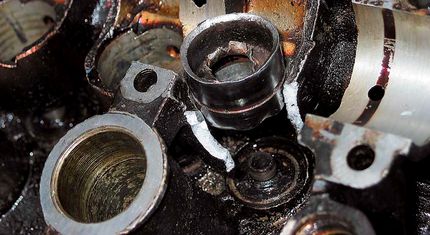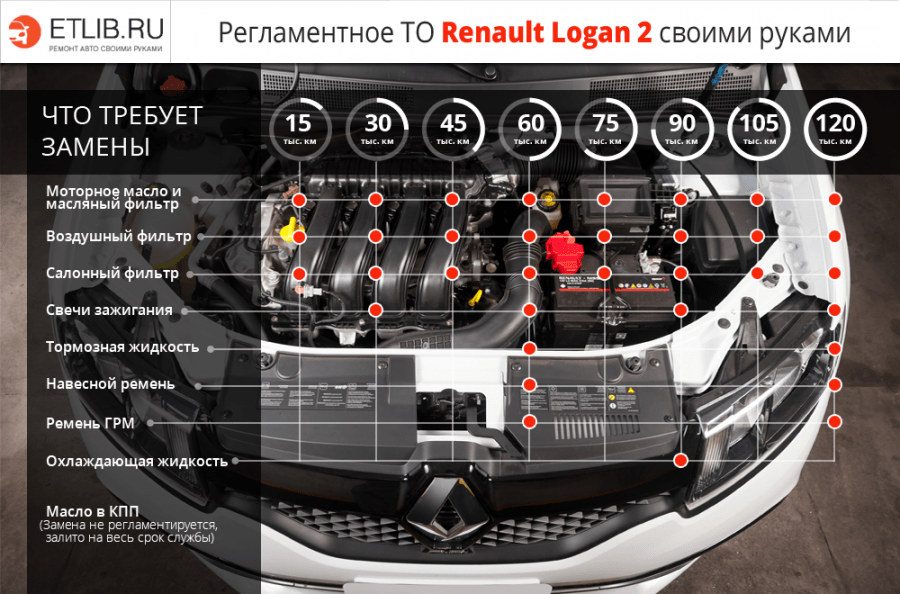
Hydraulic lifters knock on hot
Content
More often hydraulic lifters knock on hot due to low-quality or old engine oil, clogged oil filter, poor oil pump performance, insufficient oil, or mechanical failure. Accordingly, the first thing to do when they knock is to check the level and condition of the engine oil in the internal combustion engine, as well as the oil filter. A defective or clogged filter interferes with the circulation of lubricant through the oil channels.
Usually, hydraulic lifters (colloquially - hydraulics) first begin to knock precisely “hot”. If the hydraulics are wedged or the oil channels are clogged in them, then they will start knocking immediately, and after warming up, the sound may subside, as they do not receive lubrication in the right amount. In this case, only their replacement will help. But, when knocking occurs a few minutes after starting and warming up the engine, the problem can be solved more easily if the cause is not in the oil pump.
Signs of knocking hydraulic lifters on hot
It is very important for a car enthusiast to know how to understand that one or more hydraulic lifters are knocking. After all, his knock can be easily confused with other sounds in case of problems with the piston pin, crankshaft liners, camshaft or other parts inside the internal combustion engine.
The knock of hydraulic lifters on hot can be diagnosed by opening the hood. Sounds will start to come from under the valve cover. The tone of the sound is specific, characteristic of the impact of metal parts against each other. Some compare it to the sound that a chirping grasshopper makes. What is characteristic - knocking from faulty compensators occurs twice as often as the frequency of revolutions of the internal combustion engine. Accordingly, with an increase or decrease in engine speed, the knocking sound from the hydraulics will behave accordingly. Under the release of gas, sounds will be heard, as if your valves were not adjusted.
Causes of the knock of hydraulic lifters on hot
In most cases, there may be one reason out of two, which is why the hydraulic lifters knock on the hot one - the viscosity of the warmed oil is too low or its pressure is insufficient. This may occur due to various reasons.
- Low oil level. This is a very common reason why hydraulic lifters knock on hot. If there is not enough lubricating fluid in the crankcase, then it is likely that the hydraulic lifters will work “dry”, without oil, and, accordingly, will knock. However, oil overflow is also harmful for hydraulic lifters. In this case, foaming of the lubricating fluid occurs, which leads to airing of the system, and as a result, incorrect operation of the hydraulic compensators.
- Clogged oil filter. If this element has not been changed for a long time, then over time a coating of dirt forms in it, which prevents the normal movement of oil through the system.
- incorrectly selected viscosity. Often motorists are interested in the question of whether why do hydraulic lifters knock on hot after an oil change. In most cases, the problem is just because of the incorrectly selected viscosity of the oil, or it turned out to be of poor quality. There is no such thing that hydraulic lifters love some kind of oil, and some do not, you just need to choose it correctly. If the oil is too thin, then there may not be enough pressure to completely fill the hydraulic. And when it is of poor quality, it simply quickly loses its performance properties. Changing the oil will help solve the problem, and do not forget that along with the oil, you need to change the oil filter.
- Faulty oil pump. usually this reason is typical for cars with high mileage, in which the pump is simply worn out and is not able to create the proper pressure in the ICE lubrication system.
- Use of oil additives. Most oil additives perform two functions - they change the viscosity of the oil (lower or increase it), and also change the temperature regime of the oil. In the first case, if the additive has lowered the viscosity of the oil, and the hydraulic lifters are already worn out enough, then the conditions appear when the hydraulics knock on a hot internal combustion engine. As for the temperature regime, the oil works optimally precisely “hot”, and the additive can change this property. Accordingly, after pouring the additive into the oil, the hydraulic lifters can knock when there is not enough pressure to push the oil into them. Usually due to too thin oil.
- Problems in the plunger pair. With such a breakdown, oil flows out of the cavity under the plunger, namely between the plunger sleeve and the plunger itself. As a result, the hydraulic compensator does not have time to select the working clearance. This failure may occur due to wear or blockage. ball valve in plunger pair. The ball itself, the spring, the working cavity (channel) may wear out. If this happens, then only the replacement of hydraulic lifters will help.
What to do when hydraulic lifters knock on hot
Getting rid of knocking will help only find out and eliminate its cause. What happens next will depend on the situation.
First of all, you need check the oil level in the crankcase. It will depend on it how it will circulate through the oil channels. also worth making sure sufficient oil pressureeven if the oil lamp is not on.
Each internal combustion engine has its own working oil pressure and depends on its design (to be specified in the documentation), however, it is believed that at idle the pressure should be about 1,6 ... 2,0 bar. At high speeds - up to 5 ... 7 bar. If there is no such pressure, you need to check the oil pump. Most likely due to oil dilution, its performance drops. Often, in order to ensure pressure, the very reason is not eliminated; when the hydraulics knock on hot, drivers fill in thicker oil when replacing. But you should not overdo it with this, since too thick oil is difficult to pump through the system. What can cause oil starvation?
Moreover, it is not worth hurrying with the verdict of the pump itself. oil pump failures can be caused by various reasons - wear of parts, breakage of the pressure reducing valve, wear of the working surfaces of parts, and its operation may deteriorate with an elementary blockage of the oil receiver mesh. You can see if there is dirt on the grid by removing the pan. But, even with such work, you should not rush. It can only become contaminated if the general condition of the oil is poor or an unsuccessful cleaning of the oil system has been made.
Check the condition of the oil. Even if you change it according to the regulations, it could become unusable ahead of schedule (under difficult operating conditions of the car, or a fake was caught). When plaque and slag are detected, it is often not clear what to do if hydraulic lifters knock on hot. It is advisable to flush the oil system, because, most likely, the oil channels could be clogged. in order to check in what condition the oil is, it is enough to perform a small drop test.
Most often, the problem is solved elementarily - just change the oil and oil filter. Or it's just time to change the hydraulic lifters.
How to check hydraulic lifters
You can check the hydraulic lifters using one of three methods:
- With the help of a mechanical stethoscope. However, this method is only suitable for experienced motorists who know how to "listen" to the internal combustion engine. By applying it to different areas of the location of the hydraulic lifters, you can compare the sounds coming from there.
- With test probes. To do this, you need special control probes with a thickness of 0,1 to 0,5 mm. Accordingly, on a hot internal combustion engine, using probes, you need to check the distance between the hydraulic compensator and the cam. If the corresponding distance is greater than 0,5 mm or less than 0,1 mm, then the checked hydraulic is not suitable and must be replaced.
- Indentation method. This is the simplest and most common verification method. However, for its implementation, the hydraulic lifters must be removed from the internal combustion engine. After that, you need to try to press the central rod of the compensator inward with a wooden bar or a screwdriver. If the compensator is in good condition and is in a more or less normal state, it is unlikely that it will be possible to simply push it with a finger. Conversely, the stem of a faulty compensator will easily fall inward.
The last method of verification can also be performed without removing the hydraulics from the internal combustion engine, however, this will not be so convenient to perform and the result will not be so obvious. Usually failed hydraulic lifters are replaced with new ones, but in rare cases you can try to restore it by flushing. another option is to clean and repair the hydraulic compensator. As practice shows, repairing and cleaning the hydraulics does not often help, but it's still worth trying to restore it. When you decide to change, it is better to replace the entire set, otherwise the situation will repeat itself soon, but with other hydraulics.
If you drive with knocking hydraulic lifters for six months or longer, then when you remove the valve cover, it is likely that there will be burrs from rockers (rocker arms) on the camshaft “bed” itself, from below. Therefore, it is up to you to decide whether it is possible to drive with the sound of hydraulic lifters.
Hack and predictor Aviator
The first thing to do when you hear the sound of hydraulic lifters is to check the level and condition of the engine oil. Also check the oil filter. Often, an oil change paired with a filter saves from knocking, and preferably with the use of flushing oil. If the oil change did not help, then most likely the problem is either in the oil pump, or in the compensators themselves.
